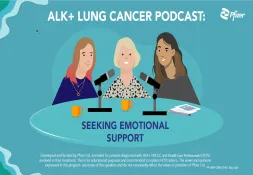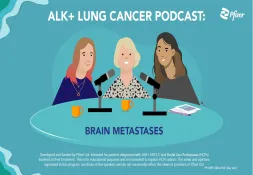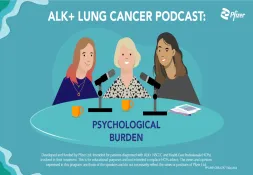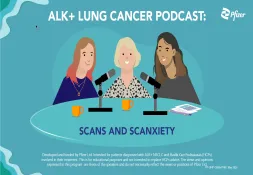The lungs
The lungs are part of our respiratory system, which allows us to breathe. Most healthy humans have two lungs - one on the left and one on the right.1
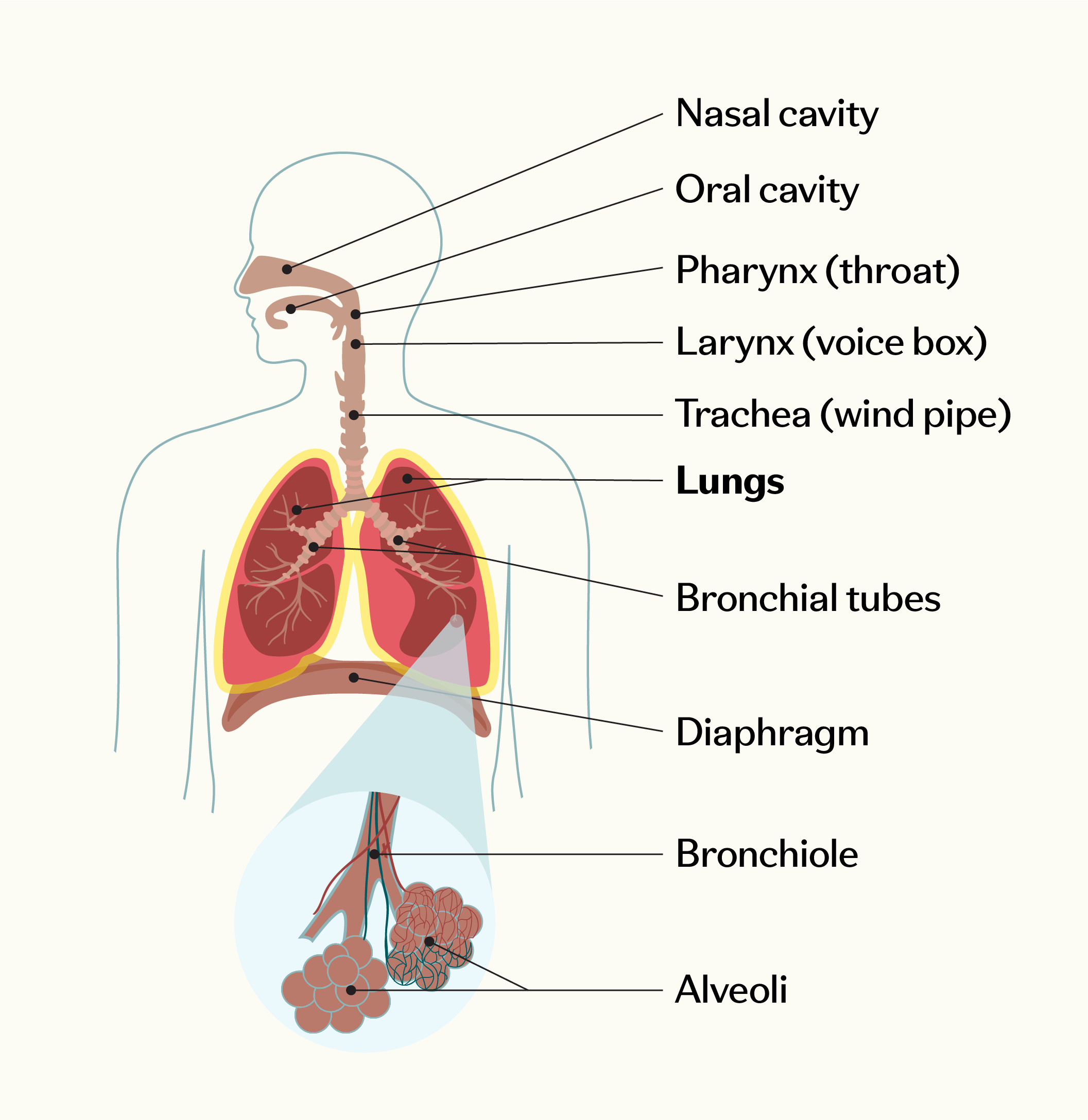
How lung cancer starts
Lung cancer is the third most common cancer in the UK, with around 48,000 people diagnosed each year.*1
Lung cancer starts when cells in the lungs or airways become abnormal and grow uncontrollably. This can cause groups of cells called tumours to form.1
In the UK, more than 4 out of every 10 people (more than 40%) diagnosed with lung cancer are 75 years old or above.3
*Estimate based on average number of people diagnosed with lung cancer in the UK each year between 2016 and 2018.
Types of lung cancer
There are 2 main types of lung cancer. Both start in different cells in the lungs.3,4
This is the most common type of lung cancer. Between 80 and 85 out of every 100 people (between 80% and 85%) diagnosed with lung cancer have this type of cancer.3,4
There are three types of NSCLC. Some start in cells found in the inner lining of the airways, while some start in the layer on the outside of the airways.4
Between 15 and 20 out of every 100 people (between 15% and 20%) diagnosed with lung cancer have this type of cancer.4 SCLC usually starts in the breathing tubes (called bronchi) in the middle of the chest. It is often diagnosed at a later stage and tends to spread faster than NSCLC.1,4
Treatment options for lung cancer
The treatment someone is given for their lung cancer is based on the type of cancer, what stage it is (how far it has grown within the lungs or if it has spread to another part of the body), where in the lungs it is found, and the person’s general health.5
Common treatments for lung cancer include:
- Surgery: This removes the tumour and part of the surrounding lung tissue. Surgery is often used in early-stage lung cancer when the cancer hasn't spread. Surgery is not usually used to treat SCLC 5
- Radiotherapy: This uses high-energy rays to target and kill cancer cells, often used with other treatments. Radiotherapy can be used to treat NSCLC and SCLC5
- Chemotherapy: This involves using anti-cancer drugs that kill fast-growing cancer cells. Chemotherapy can be used to treat NSCLC and SCLC5
- Targeted therapy: Targets specific features within the cancer cells that help them to grow and survive in the body. Targeted therapy may be recommended instead of chemotherapy for NSCLC5,6
- Immunotherapy: Helps your immune system fight cancer more effectively. It's more commonly used for lung cancer that has spread to other parts of the body, and is used to treat NSCLC and SCLC5,6
You are not alone on this journey. Your healthcare team is there to support and guide you through every step. Always reach out to them with any questions or concerns you may have — they're there to help you understand your options and make informed decisions about your care.
Explore More on Lung Cancer

If you or someone you know has been diagnosed with cancer, support groups and charities are great places to find information and connect with people going through a similar experience.

Life with cancer is different for everyone. So, if you need support, it should be personal to you. ByYourSide has been created by Pfizer to offer you practical support and guidance to help you manage life with cancer in a way that is best for you.
References
- Cancer Research UK. What is lung cancer?. Available at: https://www.cancerresearchuk.org/about-cancer/lung-cancer/what-is [Accessed April 2025].
- Macmillan. Causes and risk factors of lung cancer. Available at: https://www.macmillan.org.uk/cancer-information-and-support/lung-cancer/causes-and-risk-factors-of-lung-cancer [Accessed April 2025].
- NHS. Overview: Lung cancer. Available at: https://www.nhs.uk/conditions/lung-cancer/ (Accessed April 2025).
- Cancer Research UK. Types of lung cancer. Available at: https://www.cancerresearchuk.org/about-cancer/lung-cancer/stages-types-grades/types [Accessed April 2025].
- NHS. Treatment: Lung cancer. Available at: https://www.nhs.uk/conditions/lung-cancer/treatment/ [Accessed April 2025].
- Cancer Research UK. Targeted and immunotherapy treatment for lung cancer. Available at: https://www.cancerresearchuk.org/about-cancer/lung-cancer/treatment/immunotherapy-targeted [Accessed April 2025].

